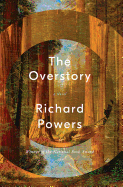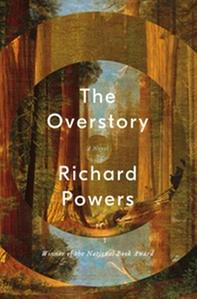
 You'll never look at a tree in the same way again after reading Richard Powers's novel The Overstory. National Book Award-winner Powers skillfully interrogates a vital issue--the wanton destruction of our natural environment--without losing sight of the intimate human dimension of the story that's always the true subject matter of any great novelist.
You'll never look at a tree in the same way again after reading Richard Powers's novel The Overstory. National Book Award-winner Powers skillfully interrogates a vital issue--the wanton destruction of our natural environment--without losing sight of the intimate human dimension of the story that's always the true subject matter of any great novelist.
In novels like The Echo Maker and Orfeo, Powers eagerly tackles complex topics in an innovative style, and he displays the same talent here. Before expertly intertwining the lives of his principal characters, he devotes a short story-like chapter to each one, explaining how all, in some way, have an unusual relationship to trees. Nicholas Hoel, for example, is a descendant of a man who launched a 100-year time-lapse photography project of a single Iowa chestnut tree, the "redwood of the East," now nearly extinct. Adam Appich is a member of a family that plants a different species of tree with the birth of each child. Neelay Mehta--the designer of a computer game that evolves over two decades into an online role-playing colossus--draws inspiration from the trees on the Stanford campus. By the end of the novel's first third, it's clear the lives of these characters must come together, but not at all apparent how that will occur.
That intersection involves protests around clear-cutting of public lands, first in California and then at a site in the Pacific Northwest a group of protestors have named "The Free Bioregion of Cascadia." Nicholas and Olivia Vandergriff, a college dropout, rename themselves "Watchman" and "Maidenhair," and take up residence high in a 200-foot-tall redwood. Their fellow demonstrators engage in other acts of civil disobedience. But when those steps, buttressed by litigation, prove fruitless, Nicholas, Olivia, Adam and others initiate more dramatic action, with disastrous consequences. At the heart of all this lies a provocative question: What causes some otherwise law-abiding people, possessed of the most benevolent intentions, to cross the line that separates passionate activism from terrorism?
Powers's writing about "noisy aspens and remnant birches, forests of cottonwoods and poplars" is as luxuriant as the hundreds of species he celebrates--from the forests of Washington State to the Amazon jungle--that feel as much characters in this novel as any human. Through Patricia Westerford, a research scientist, he even introduces the lovely notion that trees create their version of society, communicating with each other through underground networks of fungi.
Powers makes no secret that his sympathies lie with those trying to halt the destruction of old growth timber, a process one character likens to "burning down the library, art museum, pharmacy, and hall of records, all at once." But he does so with deep sensitivity, not dogmatism, and with a clear-eyed recognition that sometimes advocacy and zealotry tragically become one. --Harvey Freedenberg, attorney and freelance reviewer
Shelf Talker: In a novel about the fight to save ancient forests, Richard Powers ponders the limits of environmental activism.

